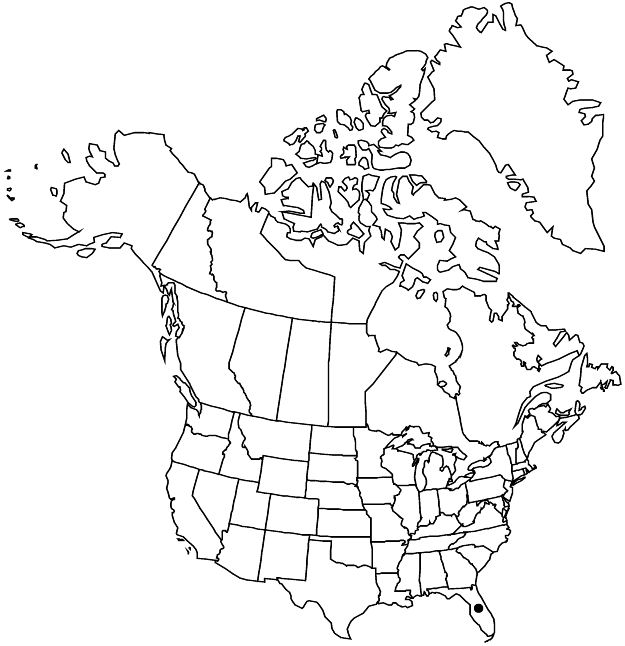Difference between revisions of "Sida ulmifolia"
Gard. Dict. ed. 8, Sida no. 1. 1768.
FNA>Volume Importer |
FNA>Volume Importer |
(No difference)
| |
Revision as of 22:45, 16 December 2019
Herbs or subshrubs, perennial, branches distichous, 1 m. Stems erect, minutely stellate-hairy. Leaves distichous; stipules free from petiole, 1–3(–5)-veined, broadly falcate, 6–12 mm, often exceeding petiole; petiole (1–)4–5(–8) mm, ca. 1/10 blade length, obscurely stellate-hairy; blade lanceolate to ovate, 3–9 cm, 2–4 times longer than wide, base cuneate to rounded, margins serrate at least distally, apex acute, surfaces hirsute to glabrate. Inflorescences axillary solitary or paired flowers, sometimes more and subumbellate. Pedicels jointed near base, 0.2–0.5(–0.8) cm, subequal to calyx and subtending petiole. Flowers: calyx ribbed, 6–8 mm, often ciliate, lobes triangular; petals yellow, 7–10(–12) mm; staminal column glabrous or hairy; style 7–12-branched. Schizocarps subconic, 5–7 mm, glabrous; mericarps 7–12, 3–4 mm, laterally reticulate, apex spined, spines to 0.5 mm. 2n = 28.
Phenology: Flowering year-round.
Habitat: Disturbed sites, principally coastal
Elevation: 0–50 m
Distribution

Fla., Mexico, West Indies, Central America, South America (Bolivia, Brazil, Colombia, Guyana, Venezuela), s Asia, Africa, Pacific Islands, Australia.
Discussion
Sida ulmifolia is pantropical and weedy but thought to have originated in Central America. In previous floras it and S. planicaulis have been treated as S. acuta Burman f., but that is a different species from those from Brazil, Guatemala, Mozambique, Sri Lanka, southeastern Asia, several Pacific islands, and Australia. Under different names, S. ulmifolia has been reported also from New Jersey and ballast.
Selected References
None.